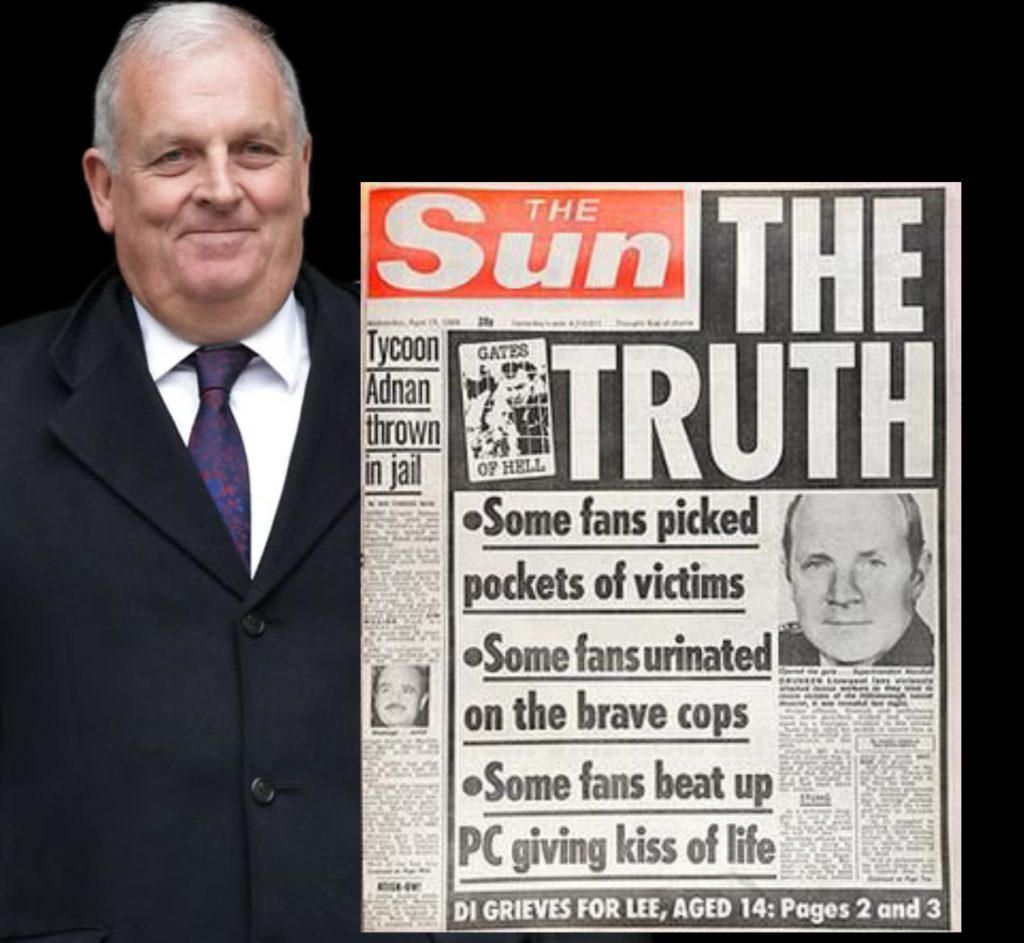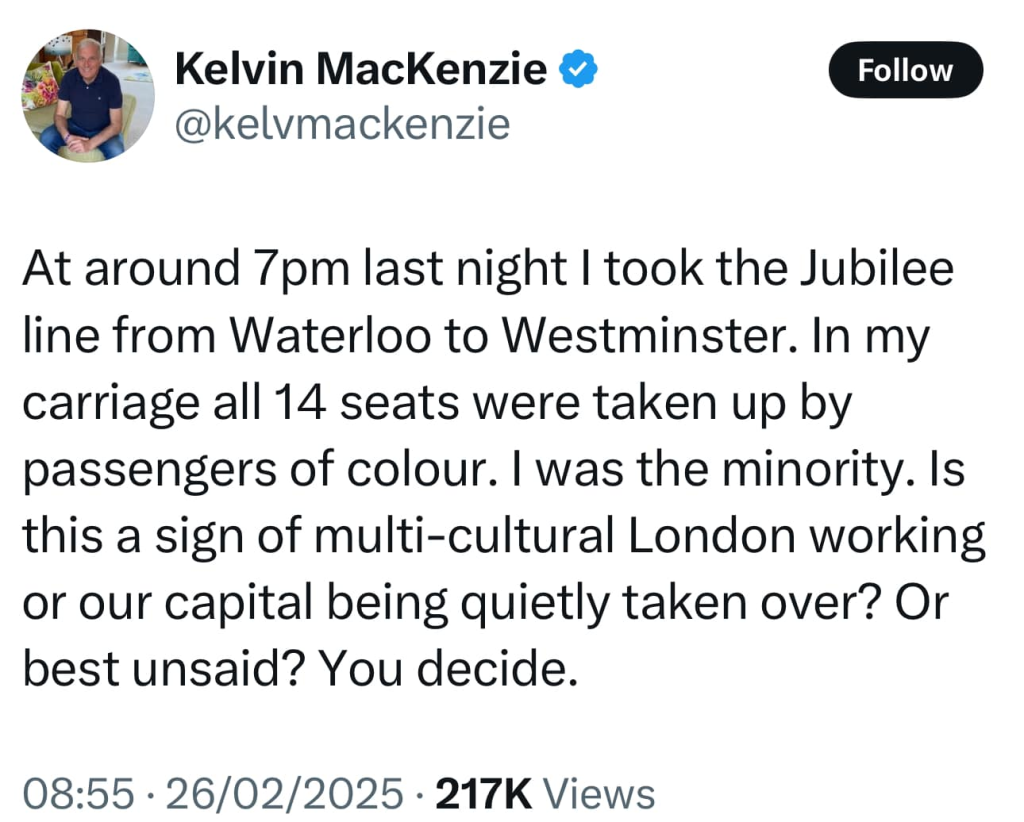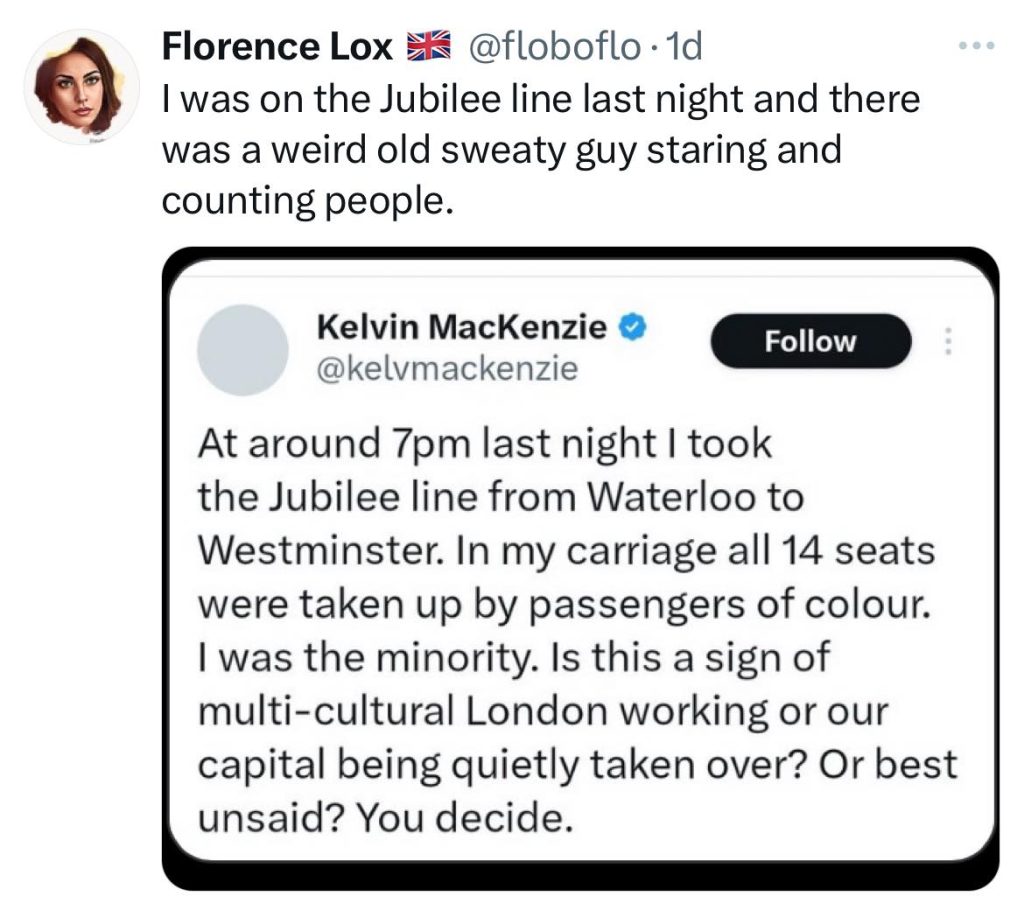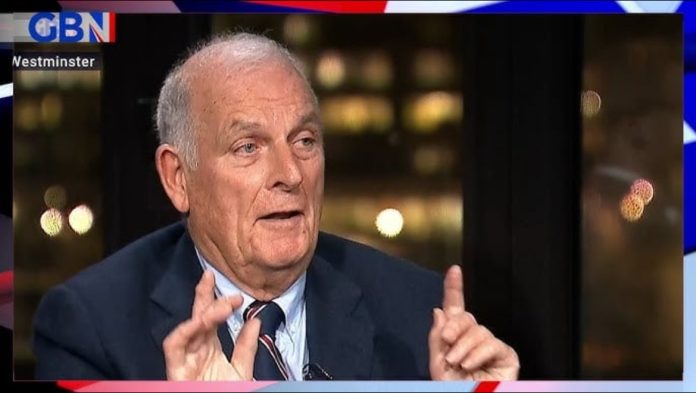Kelvin MacKenzie, a prominent British journalist and former editor of The Sun newspaper, has been a polarising figure in British media for decades. His career has been marked by numerous controversies, many of which have been accused of perpetuating racism, xenophobia, and sensationalism. Below is a detailed analysis of some of the most significant controversies associated with MacKenzie, with a focus on allegations of racism and other ethical breaches.
1. The Hillsborough Disaster Coverage (1989)
One of the most infamous moments in MacKenzie’s career was The Sun‘s coverage of the Hillsborough disaster, in which 97 Liverpool fans died due to a crush at a football match. Under MacKenzie’s editorship, The Sun published a front-page story titled “The Truth,” which falsely accused Liverpool fans of stealing from victims, urinating on police officers, and assaulting emergency service workers. The story was based on unfounded claims from unnamed sources and was widely condemned as a gross misrepresentation of the tragedy.

- Racism and Classism: The Hillsborough tragedy reflected a disdain for working-class communities, particularly those in northern England. The portrayal of Liverpool fans as violent and unruly reinforced harmful stereotypes about working-class people, many of whom were from ethnically diverse backgrounds.
- Impact: The article caused lasting damage to The Sun‘s reputation in Liverpool and beyond. Decades later, MacKenzie apologised for the story, though many viewed his apology as insincere and opportunistic.
2. Racist Headlines and Reporting

Love this response:

MacKenzie has been accused of using racially charged language and perpetuating stereotypes in his journalism. One notable example is The Sun‘s coverage of immigration and multiculturalism during his tenure as editor.
- “Gotcha” Headline (1982): During the Falklands War, The Sun published the headline “Gotcha” after the sinking of the Argentine ship General Belgrano, which resulted in the deaths of 323 sailors. The headline was criticised for its jingoistic and dehumanising tone, reflecting a broader nationalistic sentiment that often marginalised non-British perspectives.
- “Black Crime” Reporting: Under MacKenzie, The Sun frequently sensationalised crime stories involving Black individuals, often using inflammatory language that reinforced racial stereotypes. This type of reporting contributed to the stigmatisation of Black communities in the UK and fuelled racial tensions.
3. Islamophobic Comments
In recent years, MacKenzie has made several controversial remarks about Muslims, which have been widely condemned as Islamophobic.

- Comparison to Nazis (2016): In a column for The Spectator, MacKenzie compared Muslim men to Nazis, writing, “Muslim men like Hitler. They admire him. They admire his strength, his determination, his willingness to act.” This statement was widely criticised for its sweeping generalisation and inflammatory rhetoric.

- Criticism of Sadiq Khan: MacKenzie has repeatedly targeted Sadiq Khan, the Mayor of London and the first Muslim to hold the position. In 2016, he referred to Khan as a “pound-shop Enoch Powell” and accused him of having ties to extremists. These comments were seen as an attempt to smear Khan based on his religion and ethnicity.
4. Homophobic and Sexist Remarks
MacKenzie’s controversies extend beyond race and religion. He has also been accused of making homophobic and sexist comments.
- Homophobic Slurs: In 2012, MacKenzie referred to a gay MP as a “poof” during a live television broadcast. The remark was widely condemned as offensive and outdated.
- Sexist Language: MacKenzie has been criticised for using sexist language in his columns, often reducing women to stereotypes. For example, he once described a female politician as “a pretty little thing” in a manner that was widely seen as patronising and demeaning.
5. Defence of Racist Rhetoric
MacKenzie has frequently defended or downplayed racist rhetoric in the media and politics. For example, he has been a vocal supporter of Katie Hopkins, a controversial columnist known for her anti-immigrant and xenophobic views. MacKenzie has praised Hopkins for her “straight-talking” style, despite widespread criticism of her comments as divisive and harmful.
6. Controversial Stance on Brexit

During the Brexit referendum, MacKenzie was a prominent supporter of the Leave campaign. His columns often framed immigration as a threat to British identity and culture, echoing the rhetoric of far-right groups. Critics argued that his writing contributed to a climate of fear and hostility towards immigrants, particularly those from Eastern Europe and non-white backgrounds.
Analysis of MacKenzie’s Impact
Kelvin MacKenzie’s career reflects a broader trend in British tabloid journalism, where sensationalism often takes precedence over ethical reporting. His use of racially charged language, inflammatory headlines, and divisive rhetoric has had a lasting impact on public discourse in the UK. While some view him as a provocateur who challenges political correctness, others see him as a figure who has perpetuated harmful stereotypes and exacerbated social divisions.
- Media Responsibility: MacKenzie’s work raises important questions about the role of the media in shaping public opinion. His willingness to exploit racial and cultural tensions for sensationalist purposes highlights the need for greater accountability in journalism.
- Cultural Impact: The controversies surrounding MacKenzie have contributed to a broader debate about racism, xenophobia, and classism in British society. His influence underscores the power of the media to shape narratives and influence public attitudes.
Kelvin MacKenzie’s career is a case study in the ethical challenges of tabloid journalism. While he has been praised by those on the far right for his boldness and willingness to challenge so called woke society, his work has often crossed the line into racism, xenophobia, and sensationalism. The controversies surrounding him serve as a reminder of the media’s responsibility to promote fairness, accuracy, and respect in its coverage of diverse communities. As British society continues to grapple with issues of identity, the legacy of figures like MacKenzie remains a contentious and often ugly. History will judge him, in the future, as a person prone to bigotry and intolerance.







